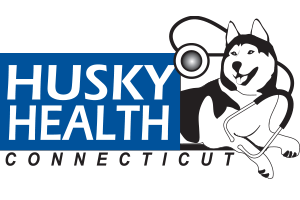
CMO Corner: Lawrence Magras, MD, MBA, FHM, FAAPL
I am pleased to announce the topics for the 2021 Behavioral Health in Primary Care Project ECHO® (Extension for Community Healthcare Outcomes) program at Community Health Network of Connecticut, Inc.® (CHNCT) which provides educational and case-based learning opportunities for HUSKY Health program primary care providers (PCPs). . . read more
The program, led by a team of experts from various universities and practices throughout Connecticut, allows us to harness the knowledge and expertise of specialists and extend that knowledge and expertise out to the HUSKY Health provider network. Our multidisciplinary team includes board-certified physicians, registered nurses, and clinical pharmacists. Sessions are typically held on the third Wednesday of every month from 12:00 - 1:00 p.m.
The ECHO model™ links PCPs from multiple sites, the spokes, to a specialist team, the hub, to manage patients with complex medical needs during virtual clinic sessions. ECHO clinics are similar to grand rounds, combined with mentoring and case presentations. During the clinics, a brief didactic presentation is given followed by PCPs from multiple sites presenting complex cases to the hub team. Hub specialists serve as mentors and colleagues by sharing their knowledge and experience. PCPs who participate in the ECHO clinic become part of a learning community, where they develop the skills and receive the support they need to provide complex care to patients in their own communities. ECHO clinics afford PCPs an opportunity to not only confer with specialists but interact with peers throughout Connecticut.
We hope you will join us at one of our upcoming sessions!
| Date | Topic Focus: Pediatrics |
|---|---|
| January 20, 2021 | Childhood Stress and Anxiety Disorders - Overview |
| February 17, 2021 | Childhood Stress and Anxiety Disorders - Treatment |
| March 17, 2021 | Attention-deficit/Hyperactivity Disorder |
| April 21, 2021 | Pediatric Depression |
| May 19, 2021 | Pediatric Bipolar Disorder |
| June 16, 2021 | Other Mood Disorders of Childhood |
| Date | Topic Focus: Pediatrics |
| July 21, 2021 | Acute Stress Disorder and Stress-Response Syndrome |
| August 18, 2021 | Anxiety Disorders |
| September 15, 2021 | Post-traumatic stress disorder (PTSD) |
| October 20, 2021 | Major Depression and Dysthymia |
| November 17, 2021 | Bipolar I/II and Cyclothymic Disorders |
| December 15, 2021 | Premenstrual Dysphoric Disorder and Postpartum Depression |
For more information please visit the ECHO page on the HUSKY Health website.

Depression Program
The Intensive Care Management (ICM) team at CHNCT has implemented a new Depression Management Program for HUSKY Health members with chronic medical conditions to address both their medical and behavioral health needs. The program focuses on promoting health equity and achieving positive health outcomes. . . read more
ICM completes the Patient Health Questionnaire-2 (PHQ-2) screening for depression with all members engaged in the ICM program to identify depressive symptoms. If the initial depression screening is positive, then the member is referred to the Depression Management Program facilitated by a Licensed Clinical Social Worker (LCSW). The LCSW reaches out to referred members to conduct a more detailed screening, utilizing the PHQ-9, to determine what referrals are indicated and which resources are available to address the members’ needs. Interventions may include a call to the current PCP, behavioral health provider, or to the Connecticut Behavioral Health Partnership/Beacon Health Options (CT BHP) warm transfer line to locate a provider. A crisis call to 911 or mobile crisis may be made if the member is experiencing extreme depressive symptoms. In addition, appropriate referrals for additional services, such as assistance from a Community Health Worker (CHW) to address social determinants of health (SDOH), are initiated as needed. The LCSW partners with the member to address barriers and facilitate next steps to obtaining treatment.
The LCSW follows-up with each member to verify that the necessary services are in place and to evaluate whether there has been an improvement in PHQ-9 scores. Once immediate behavioral health needs are met, the members in the Depression Management Program, with the support of the multidisciplinary team, can continue to focus on managing their chronic medical condition(s) and the achievement of positive health outcomes.
Resources:
https://www.nimh.nih.gov/health/publications/chronic-illness-mental-health/index.shtml
https://www.who.int/health-topics/depression#tab=tab_3
https://www.nimh.nih.gov/health/publications/depression/index.shtml

Behavioral Health Screening
A growing body of evidence suggests that early recognition and treatment of behavioral health conditions can prevent complications, improve quality of life, and help reduce health care costs.1 Primary care settings have become a gateway for many individuals with behavioral health needs and PCPs are well-positioned to identify, assess, and manage these concerns. . . read more
Behavioral health screenings can foster communication between patient and practitioner and can help PCPs identify a subgroup of higher risk patients who would benefit most from psychiatric treatment and other behavioral health resources. A wide range of validated tools are available for use in screening individuals for behavioral health conditions.
Below is a list of some of the more common tools and resources:
Children and Adolescents
- CRAAFT Substance Use Screening Tool for Adolescents
- Vanderbilt Assessment Scale
- Patient Health Questionnaire for Adolescents (PHQ-A)
- Pediatric Symptom Checklist
- Birth to 5 – Watch Me Thrive! – A Compendium of Screening Measures for Young Children
- Bright Futures
Adults
- Drug Abuse Screening Test (DAST-10)
- Alcohol Use Disorders Identification Test (AUDIT)
- CAGE-AID
- Generalized Anxiety Disorder 7 - Item Scale (GAD-7)
- Patient Health Questionnaire (PHQ-9)
- Primary Care PTSD Screen for DSM-5 (PC-PTSD-5)
As a reminder, payment for screening, brief intervention, and referral to treatment services is available for all primary care providers including physicians, physician assistants (PAs) and advanced practice registered nurses (APRNs).
Reference:
1 Mulvaney-Day N, Marshall T, Downey Piscopo K, et al. Screening for Behavioral Health Conditions in Primary Care Settings: A Systematic Review of the Literature. J Gen Intern Med. 2018;33(3):335-346. doi:10.1007/s11606-017-4181-0

HEDIS® is coming!
The HUSKY Health program utilizes the Healthcare Effectiveness Data and Information Set (HEDIS®), a tool developed by the National Committee for Quality Assurance (NCQA), to measure health plan performance on important dimensions of care and service. . . read more
The annual HEDIS® data collected from Connecticut Medical Assistance Program (CMAP) providers undergoes a medical record review conducted by Community Health Network of Connecticut, Inc.® (CHNCT) staff, followed by a compliance audit of rate results conducted by an NCQA-certified HEDIS® auditor. Results of the data collection and assessment of defined performance measures are used to evaluate where to focus quality improvement efforts as well as provide a unique opportunity to assess the care provided to the entire HUSKY Health program membership.
What to expect during the measurement year 2020 HEDIS® Medical Records Request:
| 2021 Timeline | |
|---|---|
| February | Medical record request letters are distributed to providers to begin the medical record data collection process for hybrid HEDIS® quality measures. |
| 14 days after record request | Providers are asked to return requested medical record documentation to CHNCT. |
| February through May | CHNCT will follow up with provider offices who have not submitted the requested records by the date indicated on the request letter, or if the required documentation on the list was incomplete. |
| Early May | CHNCT completes their review of the medical record documentation. |
| June | HUSKY Health program HEDIS® results are reported to NCQA and the Connecticut Department of Social Services (DSS). |
HEDIS® is a registered trademark of the National Committee for Quality Assurance (NCQA).

